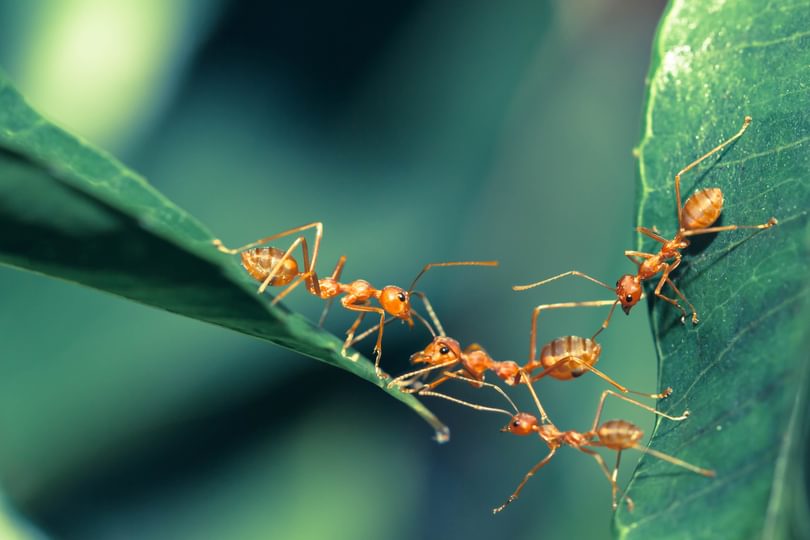
A new programme of research at the Oxford Martin School will study the contexts in which humans can become ‘super-cooperators’ and overcome self-interest to act for the common good.
Short-term goals weigh heavily on political and economic decision-making, yet failure to act on problems such as climate change, armed conflict and inequality mean that future generations will pay a heavy price. The Oxford Martin Programme on Natural Governance will investigate how humans and other organisms have evolved - over millions of years - to interact with each other and their environment, and how they have adapted and organised to achieve natural, sustainable systems of governance.
The programme brings together experts and insights from anthropology, biology, psychology and international relations to rethink how humans interact with each other and with critical resources.
The team, led by David Macdonald, Harvey Whitehouse and Dominic Johnson, will utilise data collected in extraordinary circumstances – the ‘viral’ public response to the illegal trophy hunting of Cecil the lion in Zimbabwe last year. Cecil was one of a group of lions being monitored by Oxford’s Wildlife Conservation Research Unit (WildCRU), led by Professor Macdonald.
Amongst the reactions, 4.4 million people visited the WildCRU website within 24 hours, resulting in an ’address book’ of well over 10,000 engaged members of the public with whom Professor Macdonald has established correspondence. He said: “Reactions to Cecil’s death and the extraordinary outpouring of support have provided a unique opportunity for analysing what motivates opinion and forges cohesion, and all that this implies about environmental politics.”
Professor Whitehouse, Chair of Social Anthropology and Director of the Institute of Cognitive and Evolutionary Anthropology, said their research had already uncovered that people who responded in the wake of Cecil’s death felt “highly bonded” to fellow human beings. “Super-cooperators have a very strong sense of commitment and bonding with people who are too distant to be considered kin,” he said. “Super-cooperation may sound like a complicated idea but it’s a fundamental and important concept in understanding the evolution of social complexity. Many of the things we associate with cultural evolution – the building of great works such as pyramids or cathedrals, or even sending people into space – require not just technological evolution but cooperation and coordination. So it’s important to understand the psychology that lies behind this.”
Professor Johnson, Alastair Buchan Chair of International Relations, said the huge challenges facing humanity today, such as climate change, resource scarcity and conservation, all required nations to cooperate to find solutions.
“There’s often a lot of doom and gloom but human beings are an incredibly cooperative species, in fact you could almost say we are defined by our cooperative nature. Our challenge with this research is to define what it is that motivates people to cooperate, what are the contexts and circumstances which maximise our potential for cooperation.”